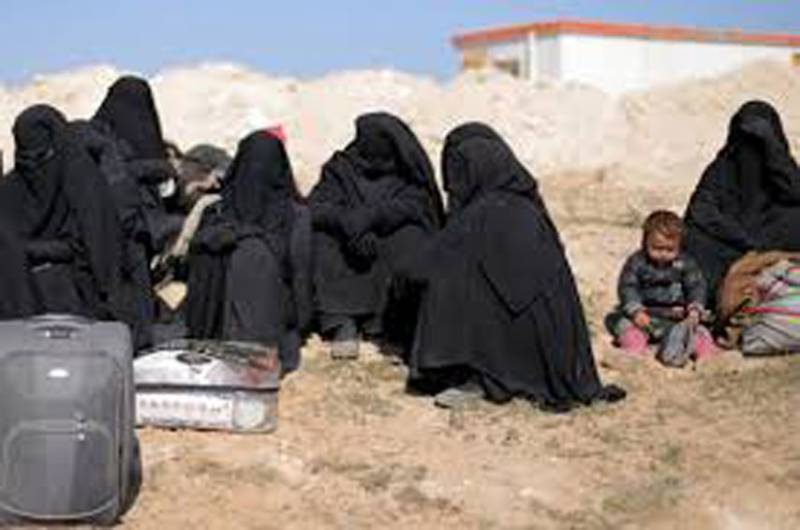DAMASCUS - Lorries have been evacuating civilians from the last village in Syria still held by the Islamic State (IS) group.
Journalists on the front line saw at least 15 vehicles carrying men, women and children leaving Baghuz. The US-backed Syrian Democratic Forces (SDF) alliance, which is besieging the area, said it did not yet know if any IS fighters were among the passengers.
However, a UK-based monitoring group said it believed all the civilians and militants who were in Baghuz had left. The Syrian Observatory for Human Rights cited its sources as saying the militants had agreed to surrender following extensive negotiations with SDF.
On Tuesday, the UN expressed concern about the fate of some 200 families reportedly trapped in Baghuz. Human rights chief Michelle Bachelet said they were apparently being actively prevented from leaving by IS and continued to be subjected to intense bombardment by SDF and US-led coalition forces.
A convoy of about 50 lorries arrived on the outskirts of Baghuz after Ms Bachelet spoke. But none of them had departed by nightfall, Reuters news agency said. US-led coalition aircraft reportedly carried out two strikes in the area before the first lorries left on Wednesday.
“We have special forces working on the evacuation of civilians. After many days of trying, we were able to evacuate the first batch today,” SDF spokesman Mustafa Bali told private news agency. Mr Bali said he did not know how many people were being brought out, or whether they included any IS militants, but that it would become clear once the lorries reached a nearby SDF screening point. “There are still civilians inside [Baghuz],” he added.
On Tuesday, the SDF said that its fighters would attack the IS pocket once it had evacuated all the civilians who wanted to leave. The militants, it warned, had only two options - surrender or die. Some 20,000 civilians who have fled Baghuz in recent weeks have been taken by the SDF to a makeshift camp for displaced people at al-Hol, in Hassakeh province.
Among them are the wives and children of IS militants and many foreign nationals, including the British teenager Shamima Begum, who was 15 when she ran away from her home to join IS four years ago.
Ms Begum, who has just given birth to a son, has said she wants to return to the UK. But the government wants to revoke her British citizenship - a decision she called “unjust”.
Five years ago, IS controlled 88,000 sq km (34,000 sq miles) of territory stretching from western Syria to eastern Iraq. It proclaimed the creation of a “caliphate”, imposing its brutal rule on almost eight million people and generating billions of dollars from oil, extortion, robbery and kidnapping.
Now, an estimated 300 militants are holed up inside about 0.5 sq km of land. Meanwhile, tens of thousands of Syrian refugees continue to face harsh living conditions at the al-Rukban camp near the Syria-Jordan border, despite Russian attempts to set up “humanitarian corridors” through the region.
Residents of the camp have refused to leave as the deadline for the corridor, facilitated by Syrian President Bashar al-Assad’s main ally - Russia - passed on Wednesday. They say they do not feel safe enough and fear reprisals from the Syrian government.
“The crossings opened by the regime and the Russian military are claimed to be safe, but the people here are not feeling any sense of safety or stability,” one resident said. Another man from the camp said international organisations such as the UN should monitor these crossings.
“For me, to leave here would be going from one death trap to another,” an elderly woman said, adding she would leave only if there was a safe place guaranteed for her family. “Opening the crossing is a good step, but we want it to be overseen by the UN,” she said.
Al Jazeera’s Imran Khan, reporting from Turkey’s Gaziantep on the border with Syria, said residents had an “enormous amount of suspicion from the people of the Rukban camp”.
Roughly 60,000 Syrian refugees are subject to harsh conditions at the camp, located in the desert region near the Syria-Jordan and Iraq border.
The UK-based Syrian Network for Human Rights recently reported a growing number of fatalities at the camp from starvation, disease and a chronic lack of humanitarian supplies. Earlier this month, the camp received its first aid delivery in three months.






